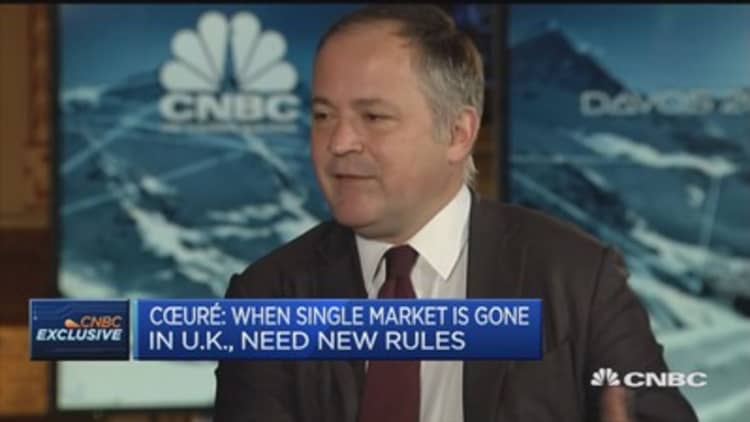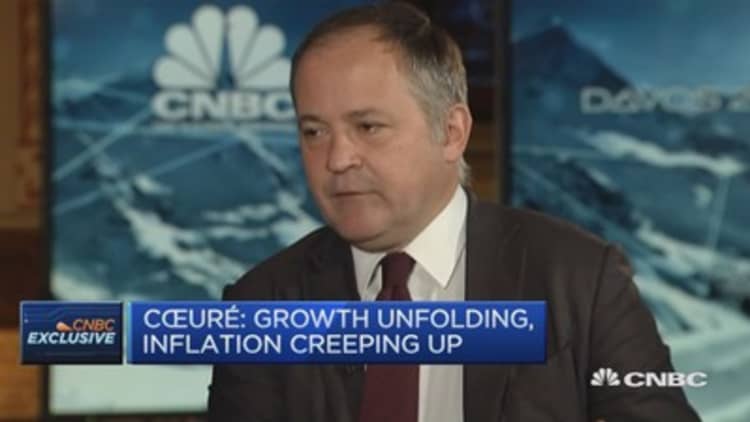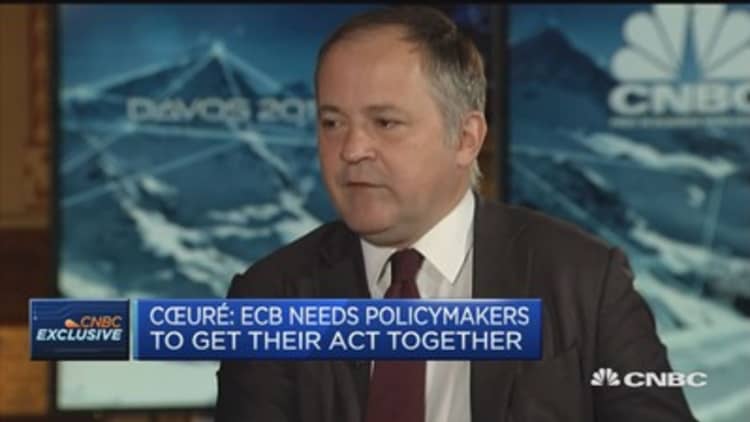
The euro clearing houses that currently trade from London could only remain in the city after Brexit if the new framework is "strong enough." But, for now, such a possibility sounds "challenging," an executive member of the European Central Bank told CNBC in Davos.
"If the new framework is strong enough, yes," Benoît Cœuré, executive board member of the ECB, told CNBC about the prospects for the City of London's clearing houses remaining in London when the U.K. leaves the EU.
"If that's possible I don't know, I don't know. It sounds challenging," he continued.
The future of the U.K.'s large financial industry has been one of the biggest doubts since the U.K. voted to leave the 28-country bloc. Euro clearing brings a lot of revenues to the City of London but they can only work from outside the euro zone because they follow European law.
Prime Minister Theresa May said this week that the U.K. will leave the EU's single market. According to Cœuré, this raises questions as to which set of rules will be applied to euro clearing houses.
"(The single market) is a set of rules to protect investors, it is a set of rules to protect consumers, it is a set of rules to ensure a level playing field among institutions and It is a set of rules to deliver financial stability. When this is gone we will have to know which other set of rules will provide that," Coeure told CNBC.
No tappering for now

The European Central Bank decided Thursday to keep its rates and bond-buying program unchanged. President Mario Draghi of the ECB said the bank will keep its loose monetary policy until there's evidence that core inflation is picking up.
Cœuré told CNBC that inflation "was not firm enough" for now and the discussion of when start tightening its policy hasn't happened yet.
"We will be able to taper when we have to taper. We still don't have to taper," he said.
"That discussion will come," he added, but so far it hasn't started because "inflation is not firm enough."
The ECB has been under criticism for keeping low rates for too long. Much of this criticism has come from Germany, where inflation is significantly higher than across the euro zone.
"I know Mr Schauble puts a lot of value on the independence of the ECB. I'm not too worried about that," Cœuré said about several comments from the German finance minister that the central bank needs to tighten its policy.
"What really people have to understand …is that our mandate is euro zone inflation," Cœuré added.
The ECB's mandate is to keep inflation at about 2 percent. The latest data said headline inflation in the euro zone was 1.1 percent in December. It was 1.7 percent in Germany.







